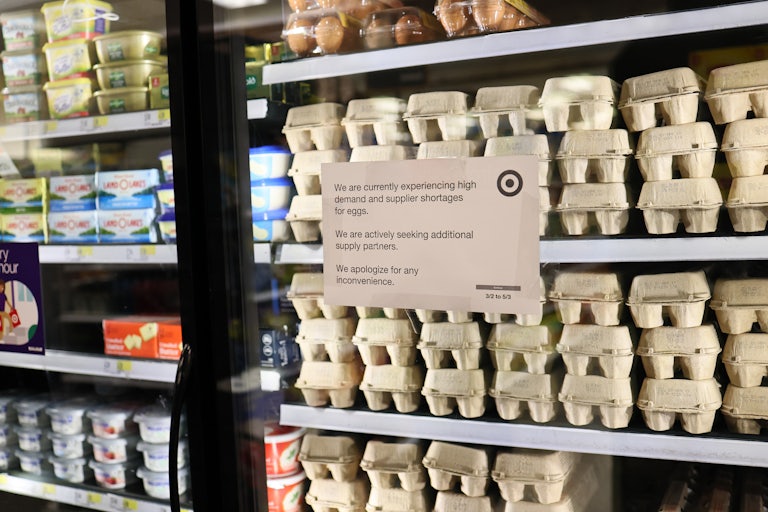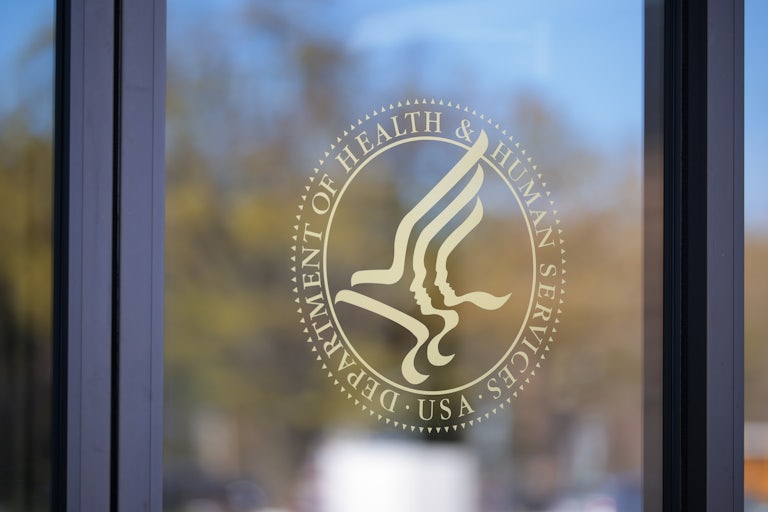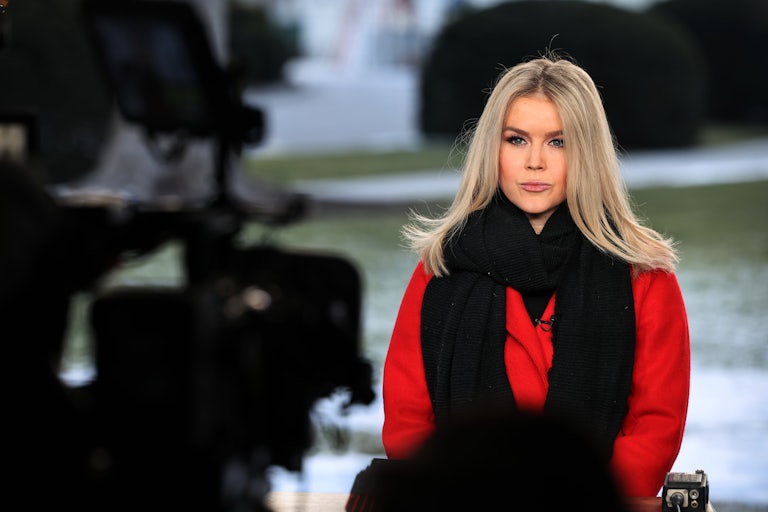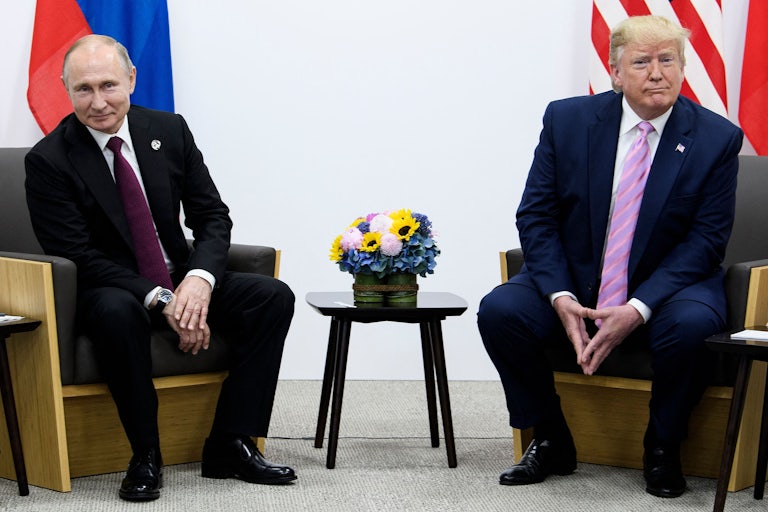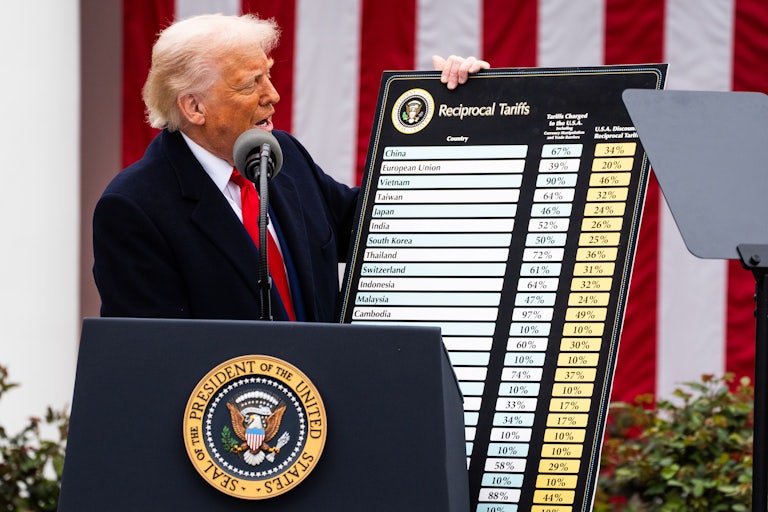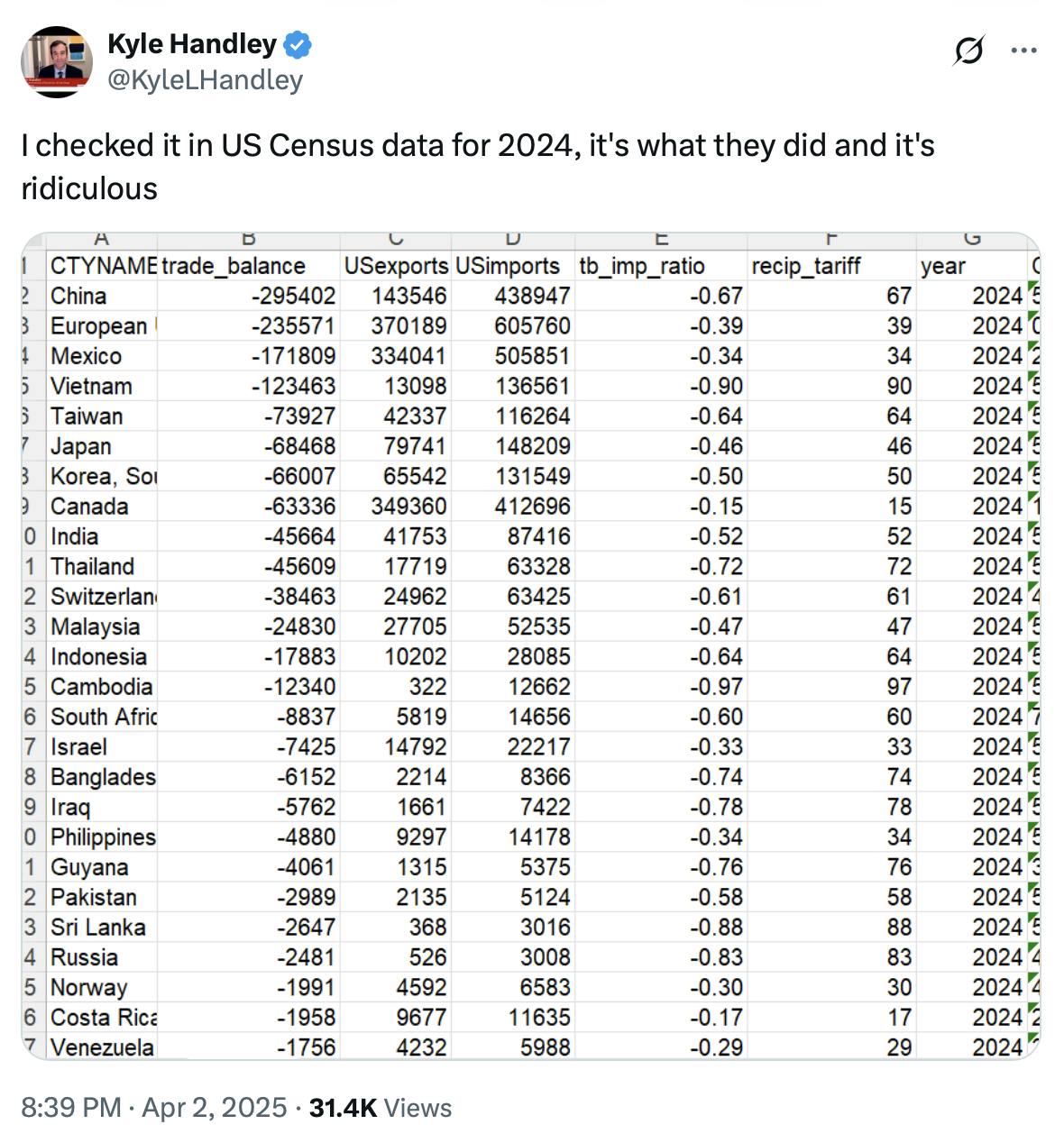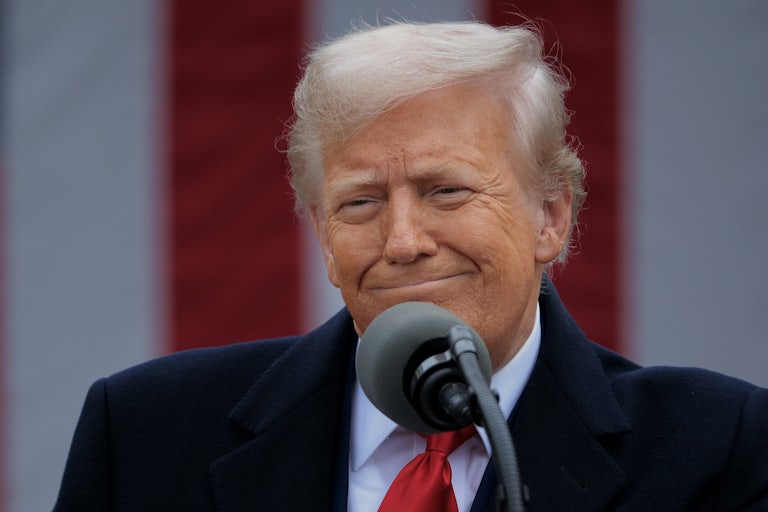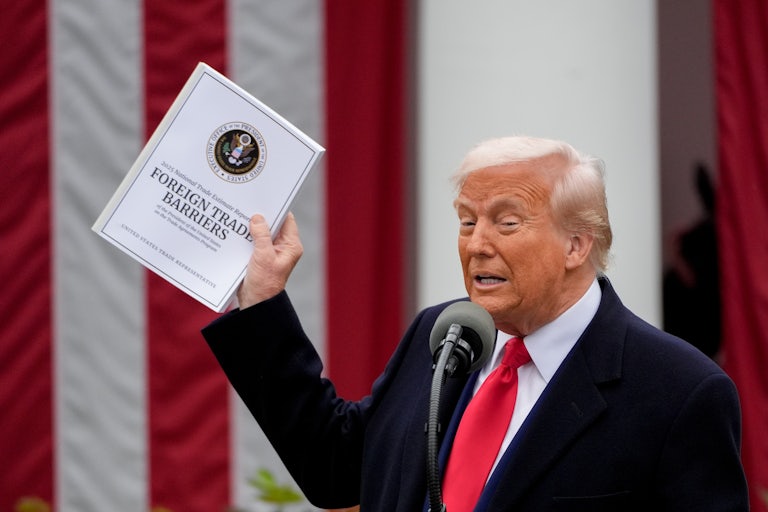Trump Delusionally Brags About Tariffs as Stock Market Crashes
Donald Trump’s expectations are not playing out so well against reality.
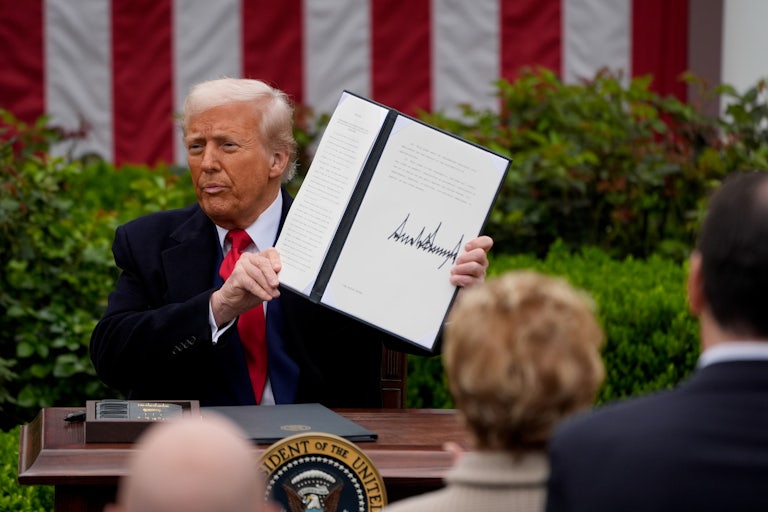
In the topsy-turvy world of the Trump administration, market panic and financial suffering are somehow good things.
The president unveiled his economic agenda on Wednesday, revealing steep tariff hikes on practically every country in the world—regardless of whether the U.S. is running a trade deficit or surplus there.
The news sent markets reeling. But by Thursday morning, Donald Trump was still celebrating his plan.
“THE OPERATION IS OVER! THE PATIENT LIVED, AND IS HEALING,” Trump posted on Truth Social. “THE PROGNOSIS IS THAT THE PATIENT WILL BE FAR STRONGER, BIGGER, BETTER, AND MORE RESILIENT THAN EVER BEFORE. MAKE AMERICA GREAT AGAIN!!!”
But it’s unclear what metrics—if any—Trump used to measure his success.
In reality, American businesses were seriously disturbed. The blue chip Dow Jones Industrial Average plunged by 1,500 points, about 3.5 percent, while the S&P 500 sank by 3.9 percent, setting both on pace for their worst day since the 2022 inflation crisis. The Nasdaq Composite tanked by more than 5 percent—bringing it down by 17 percent from its all-time high and down 13 percent year-to-date, the index’s worst performance since March 2020.
Stock futures similarly plummeted. The value of the U.S. dollar dropped, and the price for a troy ounce of gold skyrocketed.
Overnight, some of the country’s most competitive companies lost hundreds of billions of dollars. Nike and Lululemon, whose business models rely on international manufacturing deals in China and Vietnam, each lost more than 10 percent. Big-box stores also saw prominent losses: Best Buy, Target, and Home Depot lost 5 percent.
The tech industry was similarly shaken: Apple was down 9 percent (worth approximately $300 billion in market value), Alphabet by 4 percent, Amazon by 7 percent, Meta by 7 percent, Microsoft by 3 percent, and Nvidia by 6 percent.
Stores that rely heavily on imported goods saw their stocks tank too. Five Below lost 29 percent, Dollar Tree fell by 8 percent, and the Gap suffered a 22 percent loss.
“The macro does not make sense, but the level of chaos and uncertainty, coupled with revaluing highly overpriced stocks, is hitting hard,” assessed CNBC analyst Ron Insana on Thursday.
In a note to investors, JP Morgan said that Trump’s tariffs had a 40 percent chance of slingshotting the U.S. economy into a recession. JP Morgan underscored that the tariffs would cause a price surge—adding 2 percent to the consumer price index—and additionally raise taxes on Americans by $660 billion a year, “the largest tax increase in recent memory by a long shot,” reported CNN.
“The impact on inflation will be substantial,” the analysts said, according to CNN. “We view the full implementation of these policies as a substantial macroeconomic shock.”

